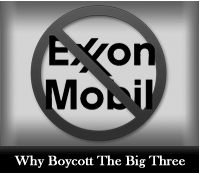 Tuesday, January 1, 2008, 9:00am (Stony Brook, NY): Leading peace and justice organizations and individuals from around the US declare a gasoline boycott pledge campaign against ExxonMobil, Shell, and British Petroleum, to remain in effect until all US forces and military bases are withdrawn from Iraq.
Tuesday, January 1, 2008, 9:00am (Stony Brook, NY): Leading peace and justice organizations and individuals from around the US declare a gasoline boycott pledge campaign against ExxonMobil, Shell, and British Petroleum, to remain in effect until all US forces and military bases are withdrawn from Iraq.Consumers for Peace, the head coordinators of the pledge campaign, report the following official endorsements: the Camp Casey Peace Institute; Gold Star Families for Peace; WESPAC Foundation; Kathy Kelly, Co-coordinator of Voices for Creative Non-Violence; David Swanson, Director of AfterDowningStreet.org; Kevin Zeese, Executive Director of Voters for Peace; human rights attorney Karen Parker; and Ward Reilly, Southeast Contact for Vietnam Veterans Against the War and Veterans for Peace.
The boycott begins as we approach the fifth anniversary of the illegal US-led invasion of Iraq. The ongoing US military occupation there has had devastating effects: approximately one million Iraqis and nearly 4,200 US and coalition soldiers have been killed, with over four million Iraqi refugees facing a humanitarian crisis. The occupation is not improving life in Iraq; polls have consistently found that Iraqis believe the US presence is causing more violence than it is preventing, even many months after the “surge” began. Most Iraqi civilians want the US to leave.
Yet General David Petraeus’s September 2007 report to Congress anticipates a “long-term effort” in Iraq. Why? Former Federal Reserve Chairman Alan Greenspan recently admitted what many have known all along, that “the Iraq war is largely about oil.” The Bush administration’s desire to control Iraq’s vast oil reserves—and to ensure that large private corporations have cheap access to those reserves—has become increasingly obvious over the course of the war, and was made explicit in the official “Declaration of Principles” released on November 26th.
ExxonMobil, Shell, and BP, the world’s largest non-governmentally-owned oil companies, are at the forefront in the push for cheap access to Iraqi oil, and may have helped lead the US and the UK to war in 2003. These companies are also the top three sellers of oil products to the Pentagon. While ordinary Iraqis and Americans bear the brunt of the war, these companies have enjoyed enormous profits as a direct result of the ongoing US presence in Iraq.
Meanwhile, both Republicans and Democrats in the US Congress have proven unwilling to end the war. Against the wishes of the vast majority of Americans, they continue to authorize additional funding for the war’s continuation. Even most Democratic proposals which advocate “withdrawal” favor leaving 50,000 or more US troops in Iraq indefinitely.
In 1931 educator John Dewey commented that “politics is the shadow cast on society by big business.” The failure of our Congress to end the occupation of Iraq reaffirms the degree of control that powerful corporations have over our government. Five years of lobbying Congress have had limited impact; we as consumers must therefore use our buying power to apply direct pressure to the companies most involved in the war. ExxonMobil, Shell, and BP have great influence on the US Congress and the administration. Faced with strong enough threats to their profits, they will pressure our government to withdraw from Iraq.
To sign the “boycott pledge” visit http://www.petitiononline.com/EndWar08/petition.html (text available below). More information on the campaign is available at http://boycottwar.blogspot.com/.
loading...









No comments:
Post a Comment